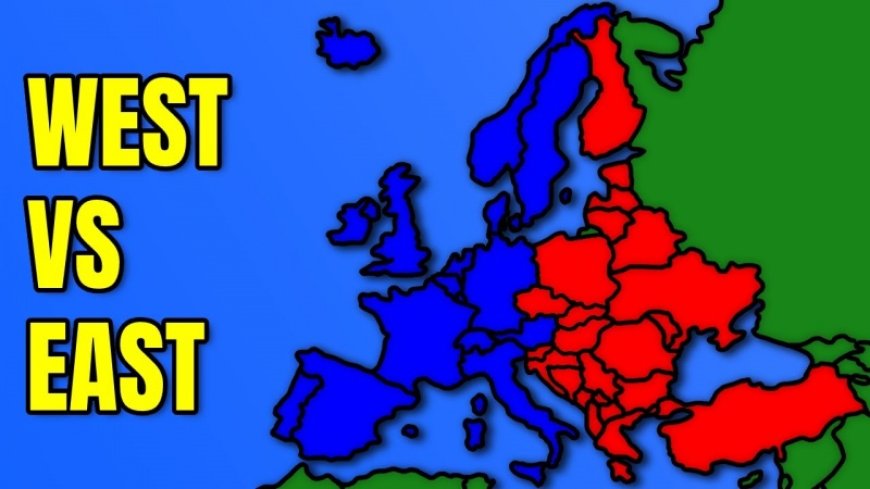EU Sanctions Against Russia: Growing Divisions and the Strain on Unity
The European Union's battle to carry out the 15th package of sanctions against Russia exposes the growing split inside the bloc and emphasizes the difficult problems confronting Europe as it negotiates its posture on the crisis in Ukraine. Latvia and Lithuania recently opposed the planned penalties, therefore hindering an attempt to punish Moscow by stricter limits on its fleet of oil-carrying vessels. This represents a major blow to the EU's attempts to show a united front during the Russo-Ukrainian war, exposing divisions in the cohesion defining the Union's reaction to Russia's invasion of Ukraine.

The European Union's battle to carry out the 15th package of sanctions against Russia exposes the growing split inside the bloc and emphasizes the difficult problems confronting Europe as it negotiates its posture on the crisis in Ukraine. Latvia and Lithuania recently opposed the planned penalties, therefore hindering an attempt to punish Moscow by stricter limits on its fleet of oil-carrying vessels. This represents a major blow to the EU's attempts to show a united front during the Russo-Ukrainian war, exposing divisions in the cohesion defining the Union's reaction to Russia's invasion of Ukraine.
targeted to undermine Russia's economic underpinning and force a change in Moscow's policies, the European Union has imposed a sequence of sanctions targeted at the energy industry from the start of the war in 2022. But the ban on Russian gas and oil has put great pressure on the EU, especially with regard to the finances. While some member nations have supported sanctions as a means of helping Ukraine, others are struggling with the negative effects of less access to reasonably priced Russian energy.
Two Baltic states—Latvia and Lithuania—who have been among the most outspoken critics of Russia's activities in Ukraine caused the most recent package, which aimed to blacklist extra Russian oil tankers—bringing the total to 75—to be derailed. The rejection reflects not only resistance to the details of the penalties but also a more general divide among the EU about its energy future and its relations with Russia.
Internal Divisions and Energy Dependence
The energy penalties applied to Russia have turned out to be a two-edged blade. Although they seek to penalize Russia for its involvement in the war, they have also aggravated European energy shortages and driven inflation. Relatively dependent on Russian energy supplies, nations including the Czech Republic, Slovakia, and Hungary have been excluded from some restrictions since they cannot find other suppliers. These exclusions, however, have grown divisive as some EU officials contend they let nations keep trade with Russia while undermining the efficacy of the sanctions.
Particularly Hungary has been outspoken critic of the EU's sanctions approach. While concurrently hurting European economy more than Russia, Foreign Minister Peter Szijjártó recently said that the sanctions had "failed" in their aim to stop the crisis in Ukraine. Other countries, especially those in Eastern Europe, who suffer more economically from rising energy prices and limited supplies also share this attitude. The economic cost is driving more nations to doubt the long-term viability of the EU's sanctions policy.
The Failure of Collective Opinion
The inability to agree on the 15th sanctions package is indicative of a larger trend in the EU whereby internal conflicts are becoming difficult to reconcile. Once proud of its ability to show a united front on topics ranging from foreign policy to commerce, the EU is today divided over sanctions, migration, and even the management of the Gaza crisis. This difference in interests has caused a divide; some members states give their national economic interests first priority over the Union's overall objectives.
Given their historical opposition to Russian encroachment, Latvia and Lithuania, both ardent supporters of Ukraine, specifically provide pushback that is particularly noteworthy. Their veto of the oil sanctions package emphasizes the difficulty in matching national security issues with financial reality. While nations like Latvia and Lithuania try to apply stricter sanctions, others, like Hungary, give economic stability top priority and are growingly dubious of the EU's present course.
The Road Ahead: Recalibration or Stalemate?
The veto of the 15th sanctions package postpones additional action on Russia until December 16, the next gathering of EU foreign ministers. EU officials want to find a mechanism to reduce the scope of sanctions at that conference while nevertheless exerting pressure on Russia. But given major differences about the specifics of the program, there is little chance of a speedy fix.
The present deadlock emphasizes a major obstacle for the European Union: keeping unity while juggling conflicting national interests. Members of the EU have to rethink the viability of their sanctions policy as the war in Ukraine lasts. The growing resistance to harsher penalties without addressing the economic consequences points to the need of a more complex strategy considering both the geopolitical goals and the financial reality of European members states.













































